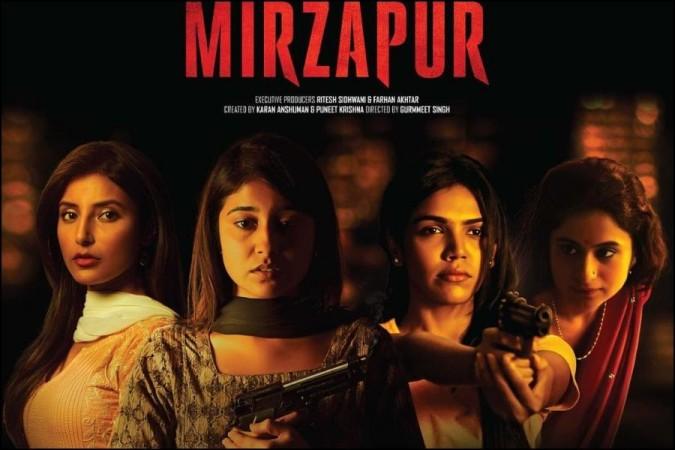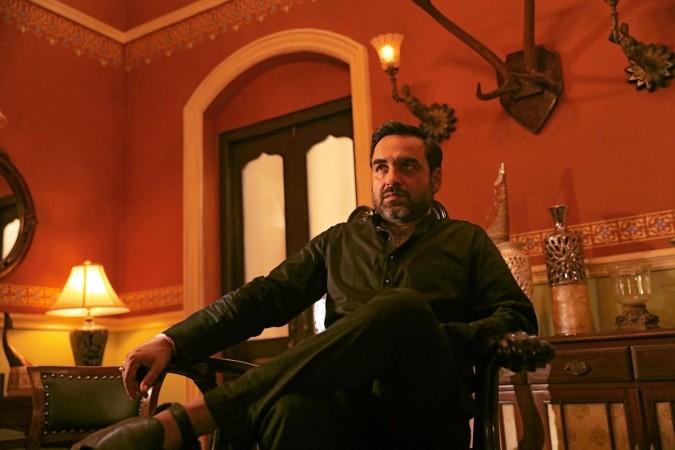The wait for the season of Mirzapur had been a long one, ever since the team released their first season in 2018. The entire cast, which included Vikrant Massey, Pankaj Tripathi, Ali Fazal, and writers Puneet Krishna, Vineet Krishna and Karan Anshuman had become the talk of the town when the show became a massive hit back then.
IBTimes got in touch with one of the writers of the show, Puneet Krishna, to get further perspective about their execution and the thoughts they explore while writing the script and characters.

How did you get into this profession?
I'm from Uttar Pradesh but not from one specific town. My father used to be in a tranferrable job so I have stayed in 12 towns in the state of Uttar Pradesh, which included East UP, Central UP, and Western UP. The answer to the question would be that I come from Uttar Pradesh but not from a specific town.
So when did the thought of being a writer dawn on you?
If you are asking about my childhood I had no aspirations to become a writer or a filmmaker. But when I was growing up I started writing poems, which my family encouraged, some emotional connection was there maybe, then my father made me learn Urdu, there was some sort of a pursuit outside school. If I may say, the seed was sowed during the college days.
I was a student of metallurgical engineering, then an MBA. So I used to write plays, direct them, you know what people do in graduate schools, during the extracurricular activities. We were celebrating one of those days, for prize-winning, we were sitting together in my room, it was my second year in engineering. Then my friends suggested that if you can write and direct plays probably that's how movies are also made, why don't you pursue that. Probably that one line which was said very casually by him motivated me. That thought stayed in my head. After that every decision in my life, made me come to Mumbai somehow.
What was your first breakthrough moment?
Actually, it is kind of difficult to pinpoint one. All the relationships I have formed in this industry have been excellent, and I'm fortunate to have worked with biggies who have been very kind to me. People usually have this notion that the industry is not welcoming towards outsiders you don't get a chance, but I'm a complete outsider, I have worked with Rajkumar Hirani as an Assistant Director in Munna Bhai Chale Amerika. That was my first experience in the film set. Then I worked with him on ad films. I got to learn a lot about how to work on sets.

So, when did Excel journey happen? (Excel Entertainment is the production house under which Mirzapur has been made)
So Excel basically, there was this script which got into a movie, it's Bangistan. I was the co-writer. One fine day we spoke to Mr Riteish Sidwani and he was kind enough to return the call. He wanted to read the script, I mailed it to them. They never ask for a narration, they wanted to read it themselves. The Creative Head read the script and a week later we got an email back. We had our script registered. Also, I do trust people a lot, so I didn't fear plagiarism or ghostwriting like that.
So calling a character Maqbool, did you hint the presence of a traitor all along?
It was a tribute to Vishal Bhardwaj. Am a big fan of Vishal Bhardwaj.
To call Maqbool would be wrong, he becomes someone because of the circumstances. To call him a traitor would be wrong, what happens with Maqbool's family he reacts out of that.
So, Maurya and Pandit switched from being the law-abiding citizens to these men who started shooting each other with guns.
So for example, if you observe clearly, Maurya was never someone who wanted to go by the book. If you remember in season 1, when he wants to eliminate Guddu and Bablu, even then he wasn't willing to go by the book. The only difference between Maurya in season 1 and season 2 is that he is now not putting the lives of fellow cops in danger. Otherwise, he was never by the book type cop.
About Pandit, see, all these characters are written from the point of view that people make decisions based on their circumstances. The best of the people can act in a good way and opposite can happen too. That's what human beings are, we have multiple personalities. When that time comes people change their decisions. That is why Pandit takes the decision to shoot. If you remember what he tells Guddu, he said that you have become just like me now, then his father said, no I haven't because I am ready to be punished for the crimes which I have committed. He is trying to be a good person, but the circumstances force him to shoot Maurya.
We all knew Munna Tripathi will die.
Not many people have said that, but if you could guess it that's cool.
I'm a professional film reviewer, have also observed screenwriting, we can understand when you drop a hint in the first sequence.
Of course. We had multiple variations for this.
Did you keep Akhanda alive consciously, because he was the better character? The wiser enemy.
Yes, yes that is the fun part, you believe that someone is wise, someone is in control. Akhananda is always in control of his emotions. Now if a character is put in a situation where Akhand is put into it will be a fun thing to watch. He used to believe that someone is wise. Out of Akhananda Tripathi and Munna Tripathi, Akhananda has been the wiser. We have always seen Munna as this dark character. But then when you see him with his wife in season 2, you see a different side. That's what we are trying to do in this show, by telling that every people have different personalities. Someone who is completely dark can be grey or white.
While I loved Priyanshu Painyuli I didn't understand, what was the importance of Robin? Pandit could have gotten in touch with him even without him.
To be very honest, this is more like a show format, than a movie format. Someone will become the connection later. He is the only connection through which Pandits can meet Tyagis. Also, he is completely devoid of the violence. All this put together we thought it was a nice character. Some people have made a very well response.

















